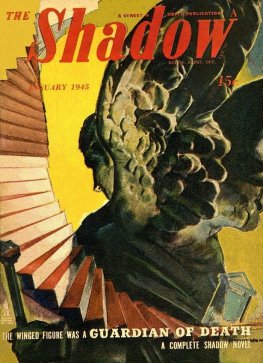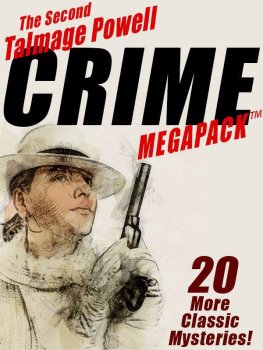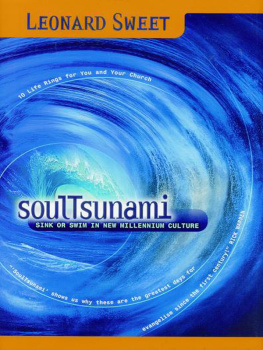The Abominations of Modern Society
By Rev. T. De Witt Talmage
THE CURTAIN LIFTED.\
Pride of city is natural to men, in all times, if they live or have lived in a metropolis noted for dignity or prowess. Csar boasted of his native Rome; Lycurgus of Sparta; Virgil of Andes; Demosthenes of Athens; Archimedes of Syracuse; and Paul of Tarsus. I should suspect a man of base-heartedness who carried about with him no feeling of complacency in regard to the place of his residence; who gloried not in its arts, or arms, or behavior; who looked with no exultation upon its evidences of prosperity, its artistic embellishments, and its scientific attainments.
I have noticed that men never like a place where they have not behaved well. Swarthout did not like New York; nor Dr. Webster, Boston. Men who have free rides in prison-vans never like the city that furnishes the vehicle.
When I see in history Argos, Rhodes, Smyrna, Chios, Colophon, and several other cities claiming Homer, I conclude that Homer behaved well.
Let us not war against this pride of city, nor expect to build up ourselves by pulling others down. Let Boston have its Common, its Faneuil Hall, its Coliseum, and its Atlantic Monthly. Let Philadelphia talk about its Mint, and Independence Hall, and Girard College. When I find a man living in either of those places, who has nothing to say in favor of them, I feel like asking him, "What mean thing did you do, that you do not like your native city?"
New York is a goodly city. It is one city on both sides of the river. The East River is only the main artery of its great throbbing life. After a while four or five bridges will span the water, and we shall be still more emphatically one than now. When, therefore, I say "New York city," I mean more than a million of people, including everything between Spuyten Duyvil Creek and Gowanus. That which tends to elevate a part, elevates all. That which blasts part, blasts all. Sin is a giant; and he comes to the Hudson or Connecticut River, and passes it, as easily as we step across a figure in the carpet. The blessing of God is an angel; and when it stretches out its two wings, one of them hovers over that, and the other over this.
In infancy, the great metropolis was laid down by the banks of the Hudson. Its infancy was as feeble as that of Moses, sleeping in the bulrushes by the Nile; and like Miriam, there our fathers stood and watched it. The royal spirit of American commerce came down to the water to bathe; and there she found it. She took it in her arms, and the child grew and waxed strong; and the ships of foreign lands brought gold and spices to its feet; and, stretching itself up into the proportions of a metropolis, it has looked up to the mountains, and off upon the sea,--one of the mightiest of the energies of American civilization.
The character of the founder of a city will be seen for many years in its inhabitants. Romulus impressed his life upon Rome. The Pilgrims relax not their hold upon the cities of New England. William Penn has left Philadelphia an inheritance of integrity and fair dealing; and on any day in that city you may see in the manners, customs, and principles of its people, his tastes, his coat, his hat, his wife's bonnet, and his plain meeting-house. The Hollanders still wield an influence over New York.
Grand Old New York! What southern thoroughfare was ever smitten by pestilence, when our physicians did not throw themselves upon the sacrifice! What distant land has cried out in the agony of famine, and our ships have not put out with bread-stuffs! What street of Damascus, or Beyrout, or Madras that has not heard the step of our missionaries! What struggle for national life, in which our citizens have not poured their blood into the trenches! What gallery of exquisite art, in which our painters have not hung their pictures! What department of literature or science to which our scholars have not contributed! I need not speak of our public schools, where the children of the cordwainer, and milkman, and glass-blower stand by the side of the flattered sons of millionnaires and merchant princes; or of the insane asylums on all these islands, where they who came out cutting themselves, among the tombs, now sit, clothed and in their right mind; or of the Magdalen asylums, where the lost one of the street comes to bathe the Saviour's feet with her tears, and wipe them with the hairs of her head,--confiding in the pardon of Him who said--"Let him who is without sin cast the first stone at her." I need not speak of the institutions for the blind, the lame, the deaf and the dumb, for the incurables, for the widow, the orphan, and the outcast; or of the thousand-armed machinery that sends streaming down from the reservoir the clear, bright, sparkling, God-given water that rushes through our aqueducts, and dashes out of the hydrants, and tosses up in our fountains, and hisses in our steam-engines, and showers out the conflagration, and sprinkles from the baptismal font of our churches; and with silver note, and golden sparkle, and crystalline chime, says to hundreds of thousands of our population, in the authentic words of Him who made it--"I WILL: BE THOU CLEAN!"
They who live in any of the American cities have a goodly heritage; and it is in no depreciation of our advantages that I speak, but because, in the very contrast with our opportunities and mission, THE ABOMINATIONS are tenfold more abominable.
The sources from which I will bring the array of facts will be police, detective, and alms-house reports; city missionaries' explorations, and the testimony of the abandoned and sin-blasted, who, about to take the final plunge, have staggered back just for a moment, to utter the wild shriek of their warning, and the agonizing wail of their despair.
I shall call upon you to consider the drunkenness, the stock-gambling, the rampant dishonesties, the club-houses so far as they are nefarious, the excess of fashion, the horrors of unchastity, the bad books and unclean newspapers, and the whole range of sinful amusements; and with the plough-share of truth turn up the whole field.
If we could call up the victims themselves, they would give the most impressive story. People knew not how Turner, the painter, got such vivid conceptions of a storm at sea, until they heard the story that oftentimes he had been lashed to the deck in the midst of the tempest, in order that he might study the wrath of the sea.
Those who have themselves been tossed on the wave of infamous transgressions could give us the most vivid picture of what it is to sin and to die. With hand tremulous with exhausting disease, and hardly able to get the accursed bowl to his lips--put into such a hand the pencil, and it can sketch, as can no one else, the darkness, the fire, the wild terror, the headlong pitch, and the hell of those who have surrendered themselves to iniquity. While we dare only come near the edge, and, balancing ourselves a while, look off, and our head swims, and our breath catches,--those can tell the story best who have fallen to the depths with wilder dash than glacier from the top of a Swiss cliff, and stand, in their agony, looking up for a relief that comes not, and straining their eyes for a hope that never dawns--crying, "O God!" "O God!"
It is terrible to see a lion dashing for escape against the sides of his cage; but a more awful thing it is to behold a man, caged in bad habit, trying to break out,--blood on the soul, blood on the cage.
Others may throw garlands upon Sin, picturing the overhanging fruits which drop in her pathway, and make every step graceful as the dance; but we cannot be honest without presenting it as a giant, black with the soot of the forges where eternal chains are made, and feet rotting with disease, and breath foul with plagues, and eyes glaring with woe, and locks flowing in serpent fangs, and voice from which shall rumble forth the blasphemies of the damned.













